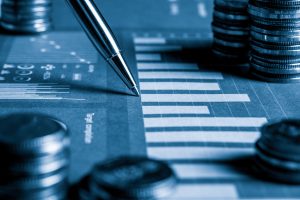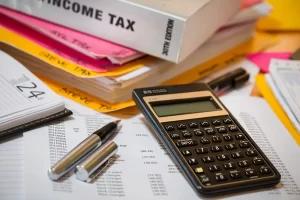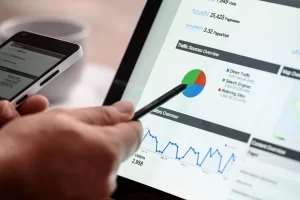Negoziare l’incertezza finanziaria – in un’opportunità d’oro
Proteggere la tua ricchezza trasferendoti negli Emirati Arabi Uniti by Relocating to the UAE
La pandemia globale ha dimostrato più e più volte che la principale caratteristica dell’uomo è la resilienza. I governi, le comunità e le istituzioni globali si stanno unendo per rimediare all’indicibile danno economico e sociale che il COVID-19 ha causato, ma a quale costo?
Il costo di COVID-19
Le economie del mondo stanno affrontando una tensione finanziaria mai vista prima. Nonostante i validi tentativi della Banca Centrale Europea (BCE) di mitigare la pressione finanziaria che il mercato sta affrontando attualmente, innumerevoli banche europee semplicemente non riescono a tenere il passo. Con l’Autorità Federale dei Servizi Finanziari (BaFin) che sta loro col fiato sul collo, e con i prestiti non pagati, molte piccole banche e istituzioni finanziarie in tutta Europa stanno affrontando la minaccia molto reale di fallimento. La Germania è quindi alla disperata ricerca di fonti di reddito alternative, e i residenti più ricchi potrebbero essere la loro prossima soluzione.
Con una proposta di prelievo patrimoniale fino al 30% su tutti i beni in discussione da parte dei governi competenti, gli imprenditori e gli individui hanno bisogno di trovare modi per proteggere il loro patrimonio il più possibile. Tuttavia, con condizioni economiche così volubili e un’incertezza schiacciante, sembra che semplicemente non sia possibile fare piani.
Un cambiamento di prospettiva
Dal punto di vista di un imprenditore europeo, il futuro della sua ricchezza sembra terribile. Tuttavia, anche se può sembrare difficile da immaginare, proteggere la propria ricchezza non è impossibile. Ci sono opzioni disponibili che vi aiuteranno non solo a iniziare a proteggere la vostra ricchezza, ma forse anche a farla crescere.
Una luce dorata
Gli Emirati Arabi Uniti (UAE), o Città d’Oro, sono diventati un paradiso economico per le giovani famiglie, i professionisti e gli imprenditori che sono alla ricerca di opportunità più stabili, che siano incentrate sul business e gratificanti. Senza imposta federale sul reddito e con un’infrastruttura di livello mondiale, gli Emirati Arabi Uniti vantano standard di vita che molti possono solo sognare.
Dalle eccezionali strutture educative e opportunità di crescita, alla libertà di movimento e alla mancanza di severe restrizioni COVID-19, Dubai si sta dimostrando un paradiso per gli stranieri e gli espatriati di tutto il mondo. Per gli imprenditori lungimiranti che hanno intenzione di sfondare nel mercato asiatico, trasferirsi negli Emirati Arabi Uniti è un’opzione ancora più valida.
Rendere gli EAU più accessibili
Trasferirsi negli Emirati Arabi Uniti, specialmente per un imprenditore o una famiglia, potrebbe sembrare una mossa stravolgente, all’inizio. Tuttavia, con il giusto supporto e l’esperienza specifica del settore, puoi iniziare a proteggere il tuo patrimonio prima di quanto pensi.
Lavorando con Alexander Erber avrai accesso immediato a strategie fiscali globali, tattiche di protezione del patrimonio di livello mondiale e un approccio diretto al trasferimento negli EAU come famiglia o individuo.
Proteggi il tuo domani agendo oggi
Mentre il futuro dell’economia europea è in bilico, puoi ancora ottenere la tranquillità che meriti quando si tratta di proteggere il tuo patrimonio. Contatta Alexander Erber oggi stesso per saperne di più su come trasferirsi negli Emirati Arabi, questo trasferimento può sbloccare un mondo di opportunità finanziarie, personali e professionali.
Throughout the history of financial markets there have been numerous occasions where
investors were taken by surprise by an extreme price movement. In many of these cases,
these large price shocks were described as puzzling and could not be rationalized by many
professional investors. The Black Monday, the Flash Crash of 2010, or the more recent
Bitcoin boom are a few such examples Trading Financial Uncertainty .
At the same time, many hedge funds have been
paying closer attention to such events by expending more and more resources to track the
fluctuation in market sentiment and learn whether trades represent information or noise.
Why is it usually more difficult to interpret extreme shocks? What type of information
do they convey? And why is uncertainty increasing during these times? Trading Financial Uncertainty
Most theoretical models in finance literature assume that traders know the degree of
rationality of other investors in the market. In this paper, instead, I take the perspective
of sophisticated investors (“hedge funds”) who are uncertain about the proportion of
informed – compared to noise – traders in the market. By studying their investment
behaviour and the subsequent learning under this assumption, I contribute to financial
research in a number of ways. Trading Financial Uncertainty
First, I find that uncertainty about the market compositionTrading Financial Uncertainty
increases when there is an extreme market outcome (for example, a crash). Second,
this increased uncertainty leads to higher uncertainty about fundamentals and higher
risk premia Trading Financial Uncertainty.
As a result, there is an asymmetry in the price reaction to positive and
negative shocks Trading Financial Uncertainty. Third, I establish that the variation in market composition constitutes
a type of risk, unrelated to fundamentals, for which investors demand higher expected
returns Trading Financial Uncertainty.
Moreover, I show that during a crash, traders rely less on cashflow news toupdate their expectations about future payoffs. Finally, the model generates a pricevolume relationship that fits well with the relevant stylized facts established in empiricalliterature and summarized in Karpoff (1987) Trading Financial Uncertainty.
STEVE INSKEEP, HOST:
You know, yesterday, I glanced at the stock market news and instantly saw that it was one of those days when it’s better not to look. The Dow Jones Industrial Average was down about 1,000 points, and now I wake up to find the market gained it all back. What happened while I wasn’t looking? NPR’s David Gura keeps an unflinching eye on the markets and joins us now. David, good morning Trading Financial Uncertainty.
DAVID GURA, BYLINE: Unflinching. Good morning, Steve Trading Financial Uncertainty.
INSKEEP: I do not understand what rationally could have changed about the economy between noon and 4 p.m. I assume something happened in the trading there that we don’t really grasp at this moment. But let’s start with the facts we do know. How did yesterday unfold? Trading Financial Uncertainty
GURA: Just an incredibly volatile moment on Wall Street. Monday was just remarkable. The kind of swing that we saw shows how much uncertainty there is on Wall Street right now, Steve, most of which centers on inflation, which has been with us for a while. But investors are waking up to two new realities Trading Financial Uncertainty.
The first is inflation is higher than it’s been in four decades. Second thing, and perhaps most importantly, is the Federal Reserve plans to fight it more aggressively. And what that means is the Fed is going to raise interest rates, but it has to achieve a very tricky balance here. The central bank needs to raise rates just enough to control inflation without bringing the whole economy to a halt. And, Steve, the Fed starts a two-day meeting today, and Wall Street is waiting anxiously for an update Trading Financial Uncertainty.
INSKEEP: Well, the Fed has been trying in recent years to remove almost all suspense from its actions and signal where it’s going. So what is suspenseful now?
GURA: Yeah. I mean, the prospect of higher rates is pretty unsettling for markets. The Fed has had interest rates near zero for many years now. And as it moves away from that, Wall Street’s nervous because low interest rates have been really good for stocks. They’ve been on a tear even during the pandemic, and many Americans had extra cash. They weren’t traveling. They weren’t going out. They – the stimulus payments, as well. So they put some of that money into the market Trading Financial Uncertainty.
And they weren’t just trading stocks. First-time investors bought bitcoin, which surged along with other cryptocurrencies. There was this signal moment when an NFT, a digital work of art by the artist Beeple, sold at Christie’s for $69.3 million dollars. Higher inflation has changed the landscape, however, and the drops that we’ve seen in recent days, I think, could portend more market misery Trading Financial Uncertainty.
INSKEEP: Do some of the analysts you talk with fear that something is going seriously, truly, grandly wrong?
GURA: Yeah, some do. There are really two schools of thought on this. One camp believes we’re seeing bubbles burst like we did in the early 2000s. And when there is a bubble, people make risky, speculative bets and things get too expensive. 2008 financial crisis was sparked in part by a boom in housing that led to all kinds of risky investments in subprime mortgages Trading Financial Uncertainty.
Now legendary fund manager Jeremy Grantham says this is the late stage of a bubble. And he writes in a new note, it will very probably end badly. But there are others who disagree.Trading Financial Uncertainty Amanda Agati is one of them. She’s the chief investment officer at PNC Financial Services, and she says what we’ve been seeing lately is noise.
AMANDA AGATI: So it’s definitely a little bit uncomfortable here, but it’s definitely a part of a natural, healthy, functioning market environment.Trading Financial Uncertainty
GURA: You know, corrections or market resets happen. They can be painful, and there has been pain, for sure. Bitcoin, for example, is now trading at about half of what it was going for at its peak. And that peak, Steve, was just a few months ago in November.
INSKEEP: Wow. David, got to be honest, I still think, as you’re watching the market, that the best reaction is what I had yesterday – just look away, wait a little while, let things smooth out over time. But suppose people are watching for what happens next Trading Financial Uncertainty. What should they watch for?
GURA: Yeah. Wall Street is paying very close attention to every whisper, really, from Fed Reserve Chairman Jerome Powell and his fellow policymakers Trading Financial Uncertainty. Powell scheduled to speak with reporters on Wednesday when that two-day meeting wraps up. You know, consensus is the Federal Reserve will raise rates four times this year starting in March. But the central bank has said all along it’ll respond to changing economic conditions Trading Financial Uncertainty. So at this point, it’s really anyone’s guess. And Wall Street doesn’t like that kind of uncertainty, Steve, which means we could see some more of the turbulence that we saw on Monday Trading Financial Uncertainty.


























